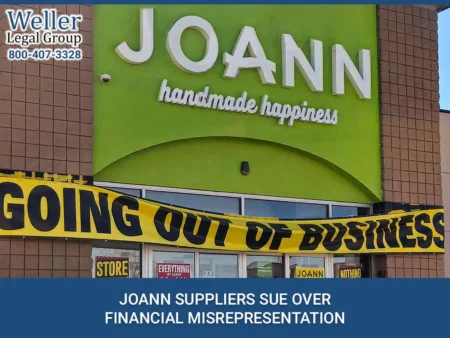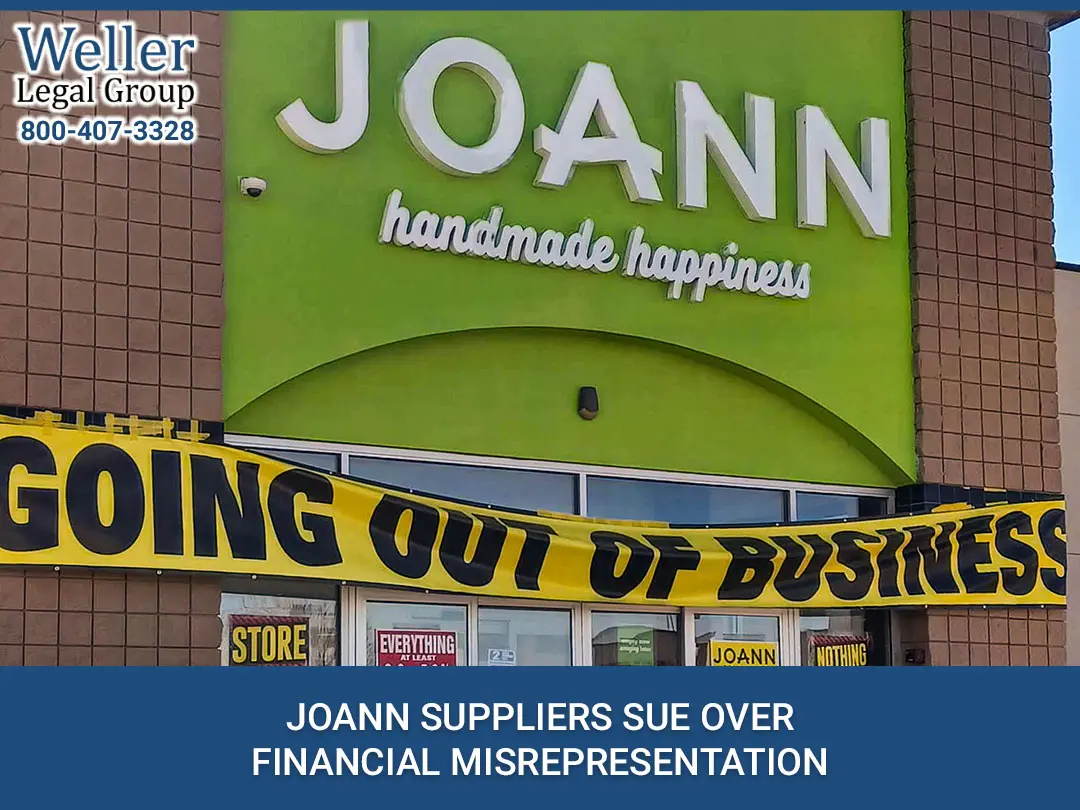
A recent legal dispute involving Joann Stores has garnered national attention, highlighting the ongoing challenges that can arise from corporate bankruptcy proceedings. This case illustrates for Clearwater residents seeking insight from an experienced bankruptcy lawyer how post-bankruptcy actions can lead to new litigation when creditors believe they were misled. Understanding the facts surrounding this lawsuit and the broader legal principles can help individuals and businesses better navigate the bankruptcy process and its aftermath.
Background of the Case
The Wall Street Journal and Food & Wine report that suppliers to Joann Stores have sued the company, alleging that its executives misrepresented its financial situation. After emerging from Chapter 11 bankruptcy in January 2025, the lawsuits allege that Joann misled its creditors about the state of its finances. Suppliers claim that the company concealed its ongoing financial difficulties, resulting in nearly $40 million in unpaid bills for goods and materials.
Earlier this year, Joann Stores, which is known for its nationwide fabric and craft supply business, completed a restructuring plan through Chapter 11. The plan aimed to maintain business operations, reduce debt, and establish new financial agreements. Some vendors, however, claim that the retailer’s recovery wasn’t as stable as initially reported, so they provided credit and shipped products without full payment.
The Company’s Defense
Joann refuted the allegations, asserting that the bankruptcy process had already addressed the suppliers’ claims. The company’s legal representatives argue that the disputed invoices were included in liquidation sales and, therefore, are no longer subject to legal collection. This position is based on bankruptcy law principles that discharge certain pre-confirmation debts upon the court’s approval of a reorganization plan.
The defense makes a valid point about how bankruptcy law distinguishes between debts that were due before the bankruptcy and those that arise after it. The suppliers may have limited legal options if their claims pertain to debts owed prior to confirmation. However, if the plaintiffs can demonstrate that the plan changed after confirmation, the defendant might face liability. Because of this, the case could test how behavior after bankruptcy affects discharge protections.
Implications for Creditors and Businesses
This dispute shows the risks creditors face when working with businesses that have just emerged from bankruptcy. Chapter 11 allows a business to restructure and continue operating, but not every reorganization ensures that the company will be able to pay its bills in the long run. Creditors must carefully review financial disclosures and maintain detailed records of all communications, contracts, and bills.
Companies that extend trade credit to businesses that have gone bankrupt should also consider implementing legal protections, such as requiring partial prepayment, shorter payment cycles, or obtaining collateral when possible. These strategies can help mitigate risk if a reorganized company fails to recover as planned. If you want to give credit to someone who has recently filed for bankruptcy, it is advisable to consult a bankruptcy lawyer first. They can help you understand your rights and the legal options available to you.
The Role of Bankruptcy Attorneys
An experienced bankruptcy lawyer can explain how these types of cases affect both debtors and creditors in Clearwater. Lawyers help their clients understand how discharge orders, liquidation plans, and creditor agreements work in bankruptcy cases. They can also explain when and how claims of misrepresentation can happen, especially when there is a disagreement over a debtor’s financial reporting.
A bankruptcy lawyer can help clients avoid going to court by reviewing their credit arrangements, negotiating repayment terms, and ensuring they comply with federal and state bankruptcy laws. The Joann case illustrates the challenges of addressing issues that arise when communication or openness breaks down during a financial restructuring.
Frequently Asked Questions
Can a company be sued after bankruptcy?
Yes, but only in certain situations. If the alleged wrongdoing occurred after the bankruptcy plan was approved, new lawsuits may proceed. However, debts included in the plan are typically forgiven.
What is Chapter 11 bankruptcy?
Chapter 11 allows a business to reorganize its debts while continuing to operate. The court must agree to a repayment plan that outlines how creditors will be paid.
What happens to unpaid suppliers after a bankruptcy case?
Depending on the assets available and the terms of the reorganization plan, unsecured creditors, such as suppliers, may receive only a portion of their money back or none at all. Once they are approved, those debts are usually forgiven.
Can financial misrepresentation void a bankruptcy discharge?
If proven, lying or committing fraud after filing for bankruptcy can result in new lawsuits against the individuals or companies involved. Under certain conditions, courts can reopen cases or impose penalties.
How can a bankruptcy attorney help creditors?
A bankruptcy lawyer helps creditors file claims, recover their money, and determine the best course of action when debtors fail to provide accurate information.
The ongoing Joann lawsuit illustrates how disputes can persist even after a bankruptcy case appears to be settled. For individuals or businesses in Clearwater seeking assistance from a qualified bankruptcy lawyer, this case reinforces the value of experienced legal counsel when navigating post-bankruptcy claims or protecting creditor rights. Understanding how reorganization plans, discharge orders, and potential misrepresentation intersect is vital for safeguarding financial interests. For guidance on bankruptcy matters and creditor protection, contact Weller Legal Group to speak with a professional dedicated to serving clients throughout Clearwater and beyond.
Picture Credit: Wikipedia (TheDoctorWho)


